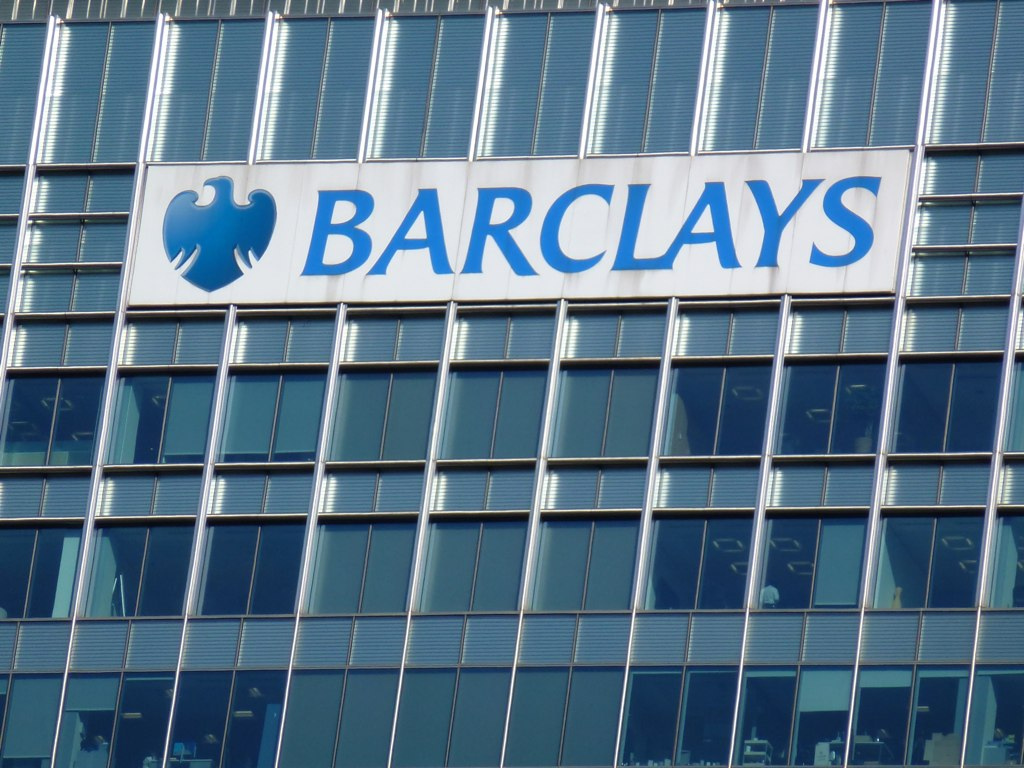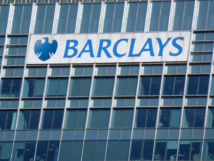Barclays has become the first bank in the UK, which began to take Bitcoins as payment. According to The Times, the bank has long studied the principles of Bitcoin in the "laboratory", collaborating with many start-ups associated with the digital currency. Now, by signing an agreement with one of the specialized trading platforms, the bank offers its customers an opportunity to transfer donations in Bitcoins to charitable organizations. In the future, Bitcoin’s ambit can expand. Representatives of Barclays say that the technology lying behind the operation of the payment system Bitcoin “can change the system of financial services”.
Bitcoin is a payment system, which was launched January 1, 2009 by an unknown programmer Satoshi Nakamoto, whose name may be fictional; his identity has not yet been established. As means of payment, the system uses digital currency - Bitcoin. Nakamoto find a way to create a unique system, which allows users to dispense with the services of a central body that would be issuing the currency’s physical analog, as well as omit intermediaries, who would be engaged in making payments. Thus, Bitcoin has become completely independent of governments and banks. This is possible thanks to Blockchain technology, which underpins the work of Bitcoin. In fact, this is a public register of all transactions carried out within the system, which is updated and supported by all members of the network. Transactions are added to the register not singly, but by blocks (hence the name of the technology) every 10 minutes. And the principles of cryptography (encryption), make cheating in the system impossible, ensure safety and authenticity of all transactions taking place within the network.
Only ordinary users support everything that happens within the system, and this eliminates the need for any intermediaries here. Thus, it lets users save on the charges usually demanded by banks and financial institutions for every transaction in today's financial system. For example, a plastic card transaction in a store involves not only the seller and the buyer, yet about seven other organizations that are responsible for carrying out specific payments. On a global scale, at the level of organizations and companies, the amount that can be saved through the use of Blockchain technology reach hundreds of billions dollars a year. As for individual banks, according to Santander InnoVentures’ recent report, the cost of this technology could be reduced by $ 15-20 billion per year by 2022. For the world economy, the figure reaches $ 550 billion.
That is why the system Bitcoin and its technological foundation had many leading global banks interested, including Barclays, UBS, BNP Paribas, Societe Generale, Citibank, Goldman Sachs, Standard Chartered and Banco Santander. The use of Blockchain is not limited to economic advantage: it is able to completely change not only the financial system, but also the mechanisms of all other branches of life and business. One of the most striking examples of this technology is NASDAQ’s experiment: the stock exchange had decided to take advantage of Blockchain for storing and updating data about the current owner of shares in companies, as well as conduct transactions on their purchase. So far, the experiment has been limited only by private companies, which have agreed to participate in it. Yet, NASDAQ leadership promised to consider full re-orientation of the exchange in case of success.
source: thesundaytimes.co.uk
Bitcoin is a payment system, which was launched January 1, 2009 by an unknown programmer Satoshi Nakamoto, whose name may be fictional; his identity has not yet been established. As means of payment, the system uses digital currency - Bitcoin. Nakamoto find a way to create a unique system, which allows users to dispense with the services of a central body that would be issuing the currency’s physical analog, as well as omit intermediaries, who would be engaged in making payments. Thus, Bitcoin has become completely independent of governments and banks. This is possible thanks to Blockchain technology, which underpins the work of Bitcoin. In fact, this is a public register of all transactions carried out within the system, which is updated and supported by all members of the network. Transactions are added to the register not singly, but by blocks (hence the name of the technology) every 10 minutes. And the principles of cryptography (encryption), make cheating in the system impossible, ensure safety and authenticity of all transactions taking place within the network.
Only ordinary users support everything that happens within the system, and this eliminates the need for any intermediaries here. Thus, it lets users save on the charges usually demanded by banks and financial institutions for every transaction in today's financial system. For example, a plastic card transaction in a store involves not only the seller and the buyer, yet about seven other organizations that are responsible for carrying out specific payments. On a global scale, at the level of organizations and companies, the amount that can be saved through the use of Blockchain technology reach hundreds of billions dollars a year. As for individual banks, according to Santander InnoVentures’ recent report, the cost of this technology could be reduced by $ 15-20 billion per year by 2022. For the world economy, the figure reaches $ 550 billion.
That is why the system Bitcoin and its technological foundation had many leading global banks interested, including Barclays, UBS, BNP Paribas, Societe Generale, Citibank, Goldman Sachs, Standard Chartered and Banco Santander. The use of Blockchain is not limited to economic advantage: it is able to completely change not only the financial system, but also the mechanisms of all other branches of life and business. One of the most striking examples of this technology is NASDAQ’s experiment: the stock exchange had decided to take advantage of Blockchain for storing and updating data about the current owner of shares in companies, as well as conduct transactions on their purchase. So far, the experiment has been limited only by private companies, which have agreed to participate in it. Yet, NASDAQ leadership promised to consider full re-orientation of the exchange in case of success.
source: thesundaytimes.co.uk



















